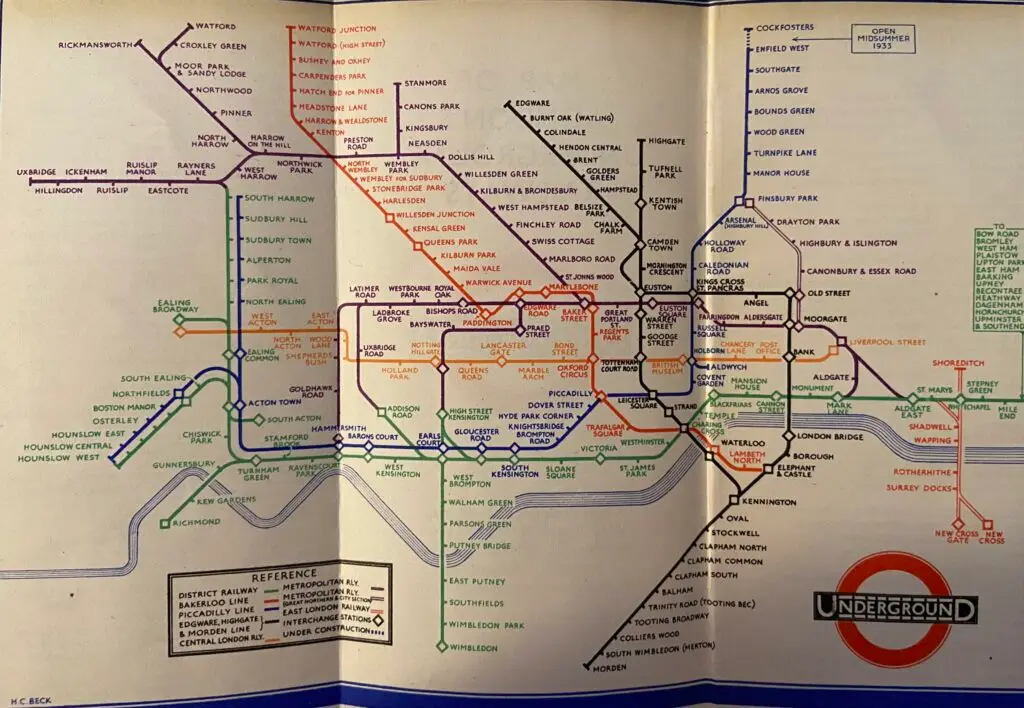Today (May 16th 2024), marks a significant milestone in my career – 30 years dedicated to the fields of research, insights, and customer experience management, all with the focus of making the best data driven decisions. Reflecting on this journey, I’ve seen remarkable changes not only in my professional life but also in the broader landscape of work and customer expectations.
Three decades ago, things were about to change. Technology was just about to make its mark and although the internet was in its early-infancy, my reality in the Data Processing department of Research Services Limited in Harrow, was working on a green/black monochrome dumb monitor, using a terminal emulator to access the fileservers directly.
We were still renting videos from Blockbuster and I was listening to Pink Floyd’s recently released “The Division Bell” on repeat; an album which incidentally was about themes of communication and how talking can solve problems.
Shifts in Working Cultures:
The workplace has transformed dramatically. In the early days, more hierarchical structures and rigid office hours were the norm, as was a suit and tie (paisley in my case). Today, we see a shift towards flexible work environments, remote working, and a greater emphasis on work-life balance. The rise of digital collaboration tools has made it easier to work from anywhere, which certainly brings benefits.
I do wonder whether we’ve lost something though. Is there a risk that the flexible workplace and constant communication mean that we don’t turn off anymore leading to increased burnout?
With a reduction in face-to-face interactions, has empathy diminished, impacting culture and relationships? Maintaining a strong connection and understanding within teams is crucial to ensuring that empathy and a customer-centric approach remain at the heart of everything we do; if we don’t get it right internally, we won’t get it right externally.

Evolution of Work and Techniques:
The methodologies and tools we use have evolved tremendously. From paper surveys and face-to-face interviews to online surveys, social media analytics, and AI-driven sentiment analysis—the way we gather and analyse data has become more sophisticated and efficient. Real-time insights are now expected, with tools that can power data-driven decision-making. We can access dashboards and leading indicators on our phones; we no longer need to wait two to three months for the fieldwork to finish and then build a 90-slide presentation on printed acetate.
From a customer experience point of view, these advancements have enabled us to provide greater personalisation and deeper insights. The potential to combine data from a broad variety of sources certainly exists. The challenge of story-telling and seeing the wood from the trees is another thing altogether. The expertise to do this well is still very much the remit and art of human intelligence and experience.

Changing Customer Expectations:
Customers today are more informed and empowered than ever before. The bar of what defines excellence changes every year. As we get used to being able to purchase a book on Kindle in seconds, we expect similarly seamless experiences everywhere. The same is true for both business-to-business experiences as it is with business-to-consumer. We are all consumers and we bring our expectations with us into the business world.
This shift has driven companies to adopt a customer-centric approach, leveraging insights to anticipate needs and exceed expectations. The changes we’ve seen in the last few years have accelerated change; if we’re not constantly reviewing our customers’ needs and expectations and how we deliver against these, their satisfaction falls.
Looking Ahead:
Inevitably I have to look to the future. I’m not going to try to guess what the situation will be in 2054, other than to say that if I’m still around and my legs work, I’ll be off on a bicycle somewhere, looking forward to a slice of cake.
What can be extrapolated from what we see at the moment?
- Technology Integration: AI, machine learning and automation will continue to revolutionise how we gather and interpret data. We’re still learning. The initial buzz and excitement following the public availability of GenAI has been tempered by a more considered approach. What we see next will be fascinating in this respect.
- Personalisation: The demand for highly personalised customer experiences will grow, pushing companies to leverage data more effectively. How far is too far though? At what point does the amount companies know about you become a concern and off-putting?
- Sustainability and Ethics: There will be a stronger focus on ethical practices and sustainable business models as customers become more socially conscious.
- Human-Centric Approach: Despite technological advancements, the human element will remain crucial. Empathy and understanding will be key in delivering exceptional customer experiences.
Whatever is around the corner, one thing is true across my personal and professional worlds and is critical in terms of customer experience, and that would be to quote Stephen Hawking from his appearance on the aforementioned Pink Floyd Division Bell album:
“All we need to do is make sure we keep talking”
And finally … on a fun note, the UK number one song on this day in 1994 was “Come On You Reds” by Manchester United, a testament to how much has changed since then!
Tim Farmer, May 16 2024




